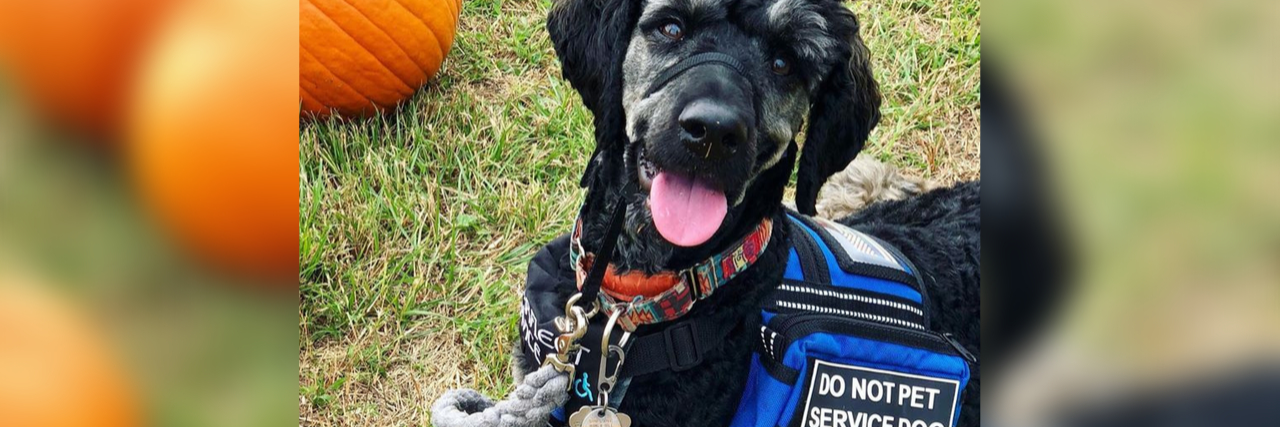The Pressure of Having an Invisible Disability
Having a disability is hard. When it’s an invisible disability, it can be challenging in different ways. What exactly is an invisible disability? It’s a disability that one can’t see. Most people don’t consider that when making assumptions. We tend to only notice what the eye can see. When those of us with invisible disabilities use aids or accommodations, we may be questioned or looked down upon. I have found I feel pressure in how I appear to others as someone living with an invisible disability.
One of the main pressures I’ve come across as someone who has an invisible disability is to needing to appear “sick” so people don’t question the legitimacy of my illness.
If I know I’m going to the grocery store and I might need to use the electric scooter because my heart condition is flaring, or my legs are sore from the infusions I had last night, I might not put makeup on. I might decide to let the world see the dark circles under my eyes and my overly pale skin. That way, when they see me riding that darn scooter while I purchase my carton of eggs, they might not send me judgmental glares and talk under their breath about how I’m taking it from someone who “might need it more” than me.
In addition, accessible parking stickers have become the bane of my existence. I have heard many horror stories from people like me who have gotten a disability parking sticker from their doctor but have been condemned for using it. There have been notes left on cars from people saying, “How dare you take that parking spot from someone who is actually sick or disabled?” Even physical altercations have ensued from such instances.
I feel pressure to park in a regular parking spot like everyone else and tuck the disability permit in the pocket of my car door to gather dust. I don’t want people to look at me weird because they see me walking into the store upright and on two legs. They don’t know that my lung function can drop severely from walking long distances and result in my loss of consciousness. I don’t want to get in a fight. I just want to get my eggs.
Along with myself, I feel pressure related to how others perceive my service dog. Service dogs can save lives and also cause a scene. My service dog may aid my invisible illnesses, but there is pressure everywhere I go to have my dog behave perfectly. After all, I can’t forget that the public is watching my every move. My service dog might be fake if my dog has a bad day. I don’t look sick. It would be easy to buy a “service dog” vest online and claim my dog is a service dog (even though that is illegal). They don’t know that my dog has gone through extensive training to even be allowed in public places, let alone out of my house.
Even with all of her training, she’s still a dog. She still has off days like everyone else and she isn’t a robot — thank goodness! Another pressure that I have noticed when in public with my service dog is to let people pet her, even though her vest clearly says “do not pet.” People don’t realize that by distracting my dog, she could miss a vital alert that could ultimately save my life.
I also don’t want to be left behind. I might be having a hard day physically, but I don’t want to show it. I don’t want to worry my friends or family and I try to keep up with the rush of living life in all its glory. I want to go out with my friends without having to go home early. I want to go to school and put makeup on, so people don’t worry about me and ask if I’m OK because I look sick.
I feel pressure to look and act better on the outside than I feel on the inside so I don’t worry others. I feel pressure to keep up with other girls my age. I feel pressure to call my friend back and hear about how bad her day was and offer support, even though I’ve been too sick to get off the floor.
When one has a rare diagnosis, they might try to connect with people who are going through similar issues. There are many support groups on Facebook and even local meetings to attend. These can be great resources so we don’t feel isolated in our illness. On the other hand, it can become a game of being the sickest person in the room (or Facebook group).
“You only passed out once last week? That must be nice. I passed out five times.”
“I’m barely getting out of bed in the morning.”
“I’ve been on disability for five years now.”
What once was meant to be a place of refuge and companionship can easily be turned into something competitive and negative. There can be pressure to fit in — even with the “sick kids.”
The pressures are there, but they don’t define me. I fight against the pressure and try to live my life in a way that I can be proud, and that isn’t defined by what people think of me or how sick I am. I know how I feel. I know the strength it takes to make it through the day when my body is failing me, even if no one can see it.

